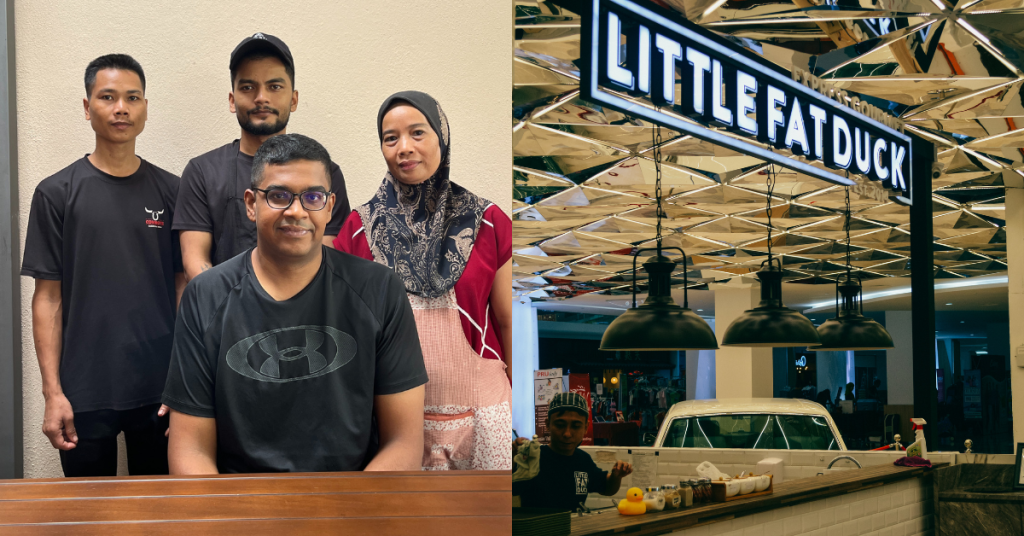Sometimes entrepreneurship is about doing the right thing at the right time, even if you didn’t know it then.
Such was the case for Adel bin Muhamed Ishak, who studied mass communications in university.
Entrepreneurship has always been something Adel leaned towards, though, having played and sold trading cards as a child.
“I also used to play games and sell virtual items for real money such as Ragnarok and World of Warcraft,” he mused.
While F&B is a relatively low barrier-to-entry business, it’s pretty different from selling trading cards and video game skins, though. But that’s exactly what Adel chose to do in 2014.
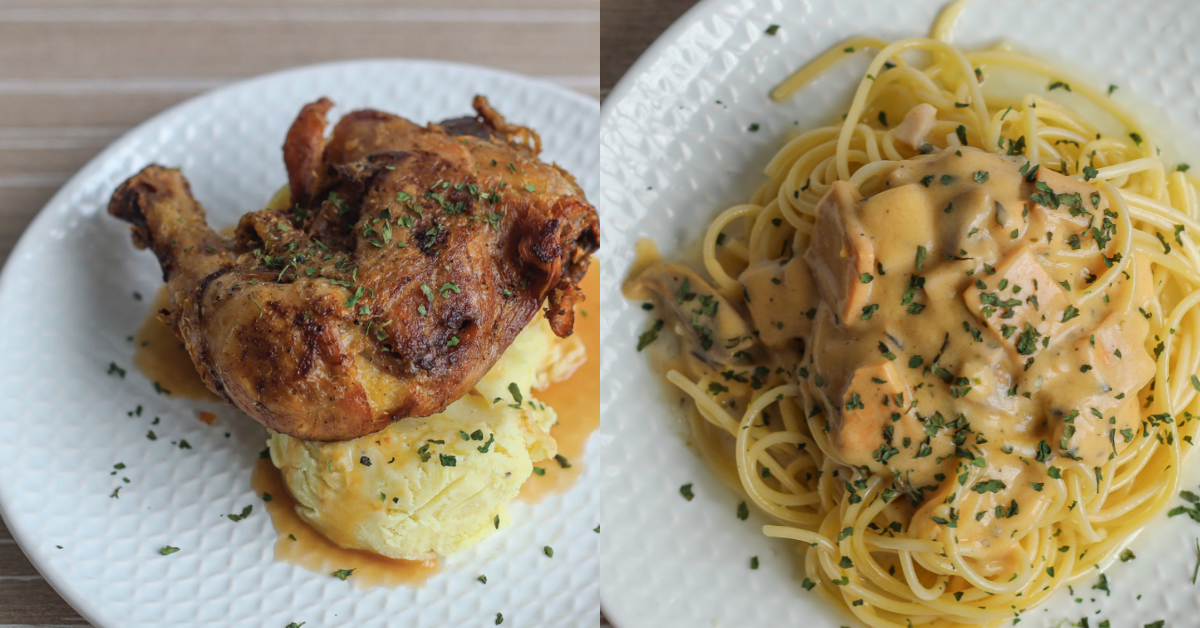
At the time, his partner had convinced him to try running a food truck business together. “If business does go south, we sell the lorry and go back on our career journey,” Adel thought.
So back then, at the age of 26 with no heavy commitments, he took the leap into running the food truck business known as Little Fat Duck.
Driving into the business
Noticing that there weren’t many options for affordable spaghetti and French dishes back then, Adel and his partner decided to hone in on halal French and Italian-inspired cuisine.
“Some recipes were taken from my mum, others were R&D-ed by watching YouTube videos and getting friends to come over and do taste tests on the food,” Adel recalled.
Until today, Little Fat Duck continues to serve these dishes, including a range of pastas, mains like Chicken Confit, and sides.
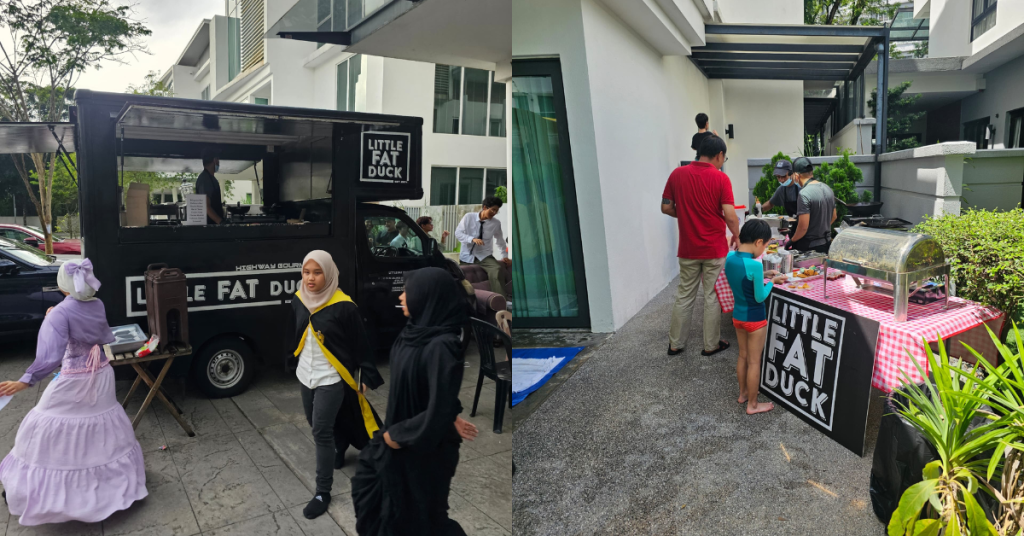
With a strategy to sell in high volumes, the team was able to purchase ingredients in bulk and get discounts on it, which translated to a low price for customers.
This focus on affordability is also why Little Fat Duck began as a food truck. Compared to a brick-and-mortar store, a food truck is definitely much lower cost, which is why Adel and his partner decided to go this route.
It proved to work for them, as Little Fat Duck was able to scale into malls just over a year after their launch.
Regrouping and refocusing
Over the past decade, many things have changed for the business, though. For one, the team has grown a lot then shrunk a lot—but half of the team are still people who have been there from the start.
At one point, the business had grown to nine outlets in malls and three cloud kitchens.
But then the pandemic happened and wiped out most of those outlets. Today, only one Little Fat Duck outlet and one food truck is left, both of which are self-owned.
To cope with the losses, Little Fat Duck began offering OEM services—“manufacturing” white-labelled dishes for other brands.
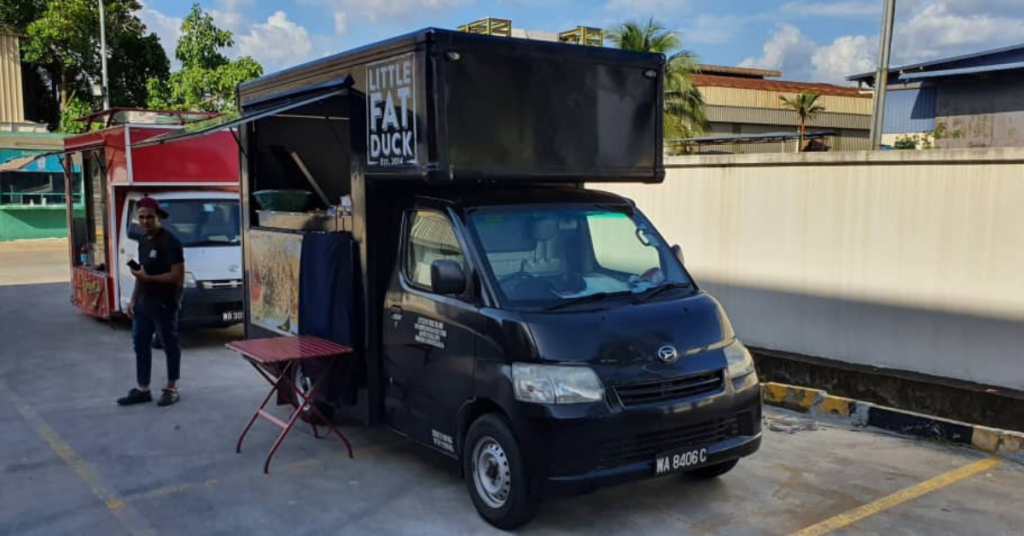
“We still had our central kitchen and our staff on payroll, so that’s when we started to produce for other people,” Adel explained. “Because during that time it was hard to get a manufacturer to produce sauces and meat together.”
So, leveraging their central kitchen, Little Fat Duck began supplying to cafes, burger joints, hotdog joints, kopitiams, and more.
Straying from their own menu, they even offer Malay dishes such as rendang ayam, kicap kambing, and pes ikan bakar.
“We noticed this was what was missing in the market,” Adel commented. “If we had known that our service existed when we started, we would never have invested in the central kitchen ourselves and have all this additional cost of maintenance and such. We would only just need to focus on selling.”
Venturing into something new
Beyond running Little Fat Duck and their OEM business, Adel and his team now also own and operate Cowboys Barbecue and Grill, a notable BBQ joint in Ara Damansara.
“It happened when the owner, who is also a close friend, offered us to join in,” he said. “We went through with it because we have always been manufacturing [some] of their items all [this] while.”
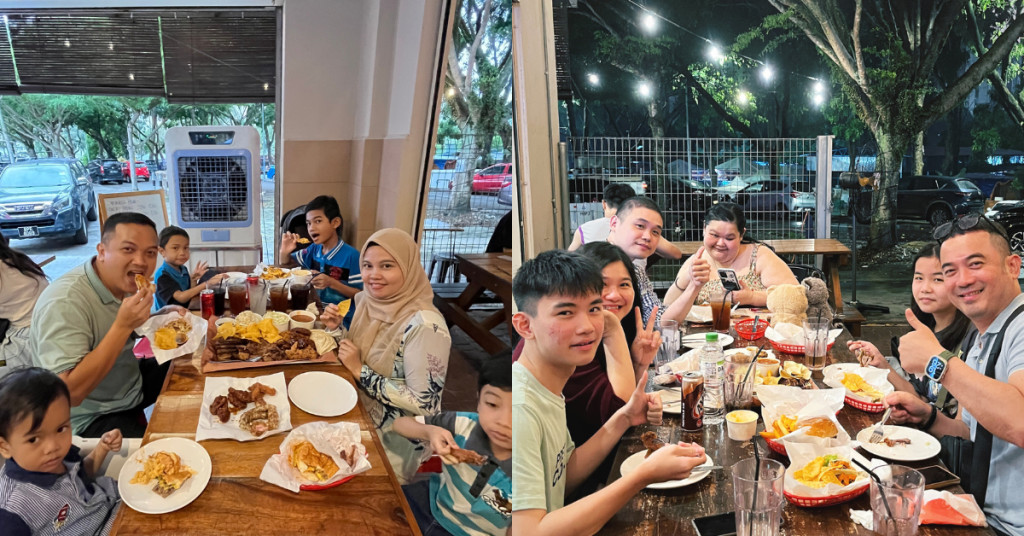
Thus, the Little Fat Duck team now runs the outlet together with the previous owner.
Despite the new ventures, though, the financials still aren’t looking solid for the business.
“Our profits were not amazing, because we were heavily affected on volume sales,” Adel admitted.
“COVID wiped us clean of whatever war funds we had. We had to still pay rentals to malls and there were no sales, but rental, utilities, all we still had to pay. Also, we did not let go of any of our staff during this time. And we had to do a lot of restructuring repayments to our debtors.”
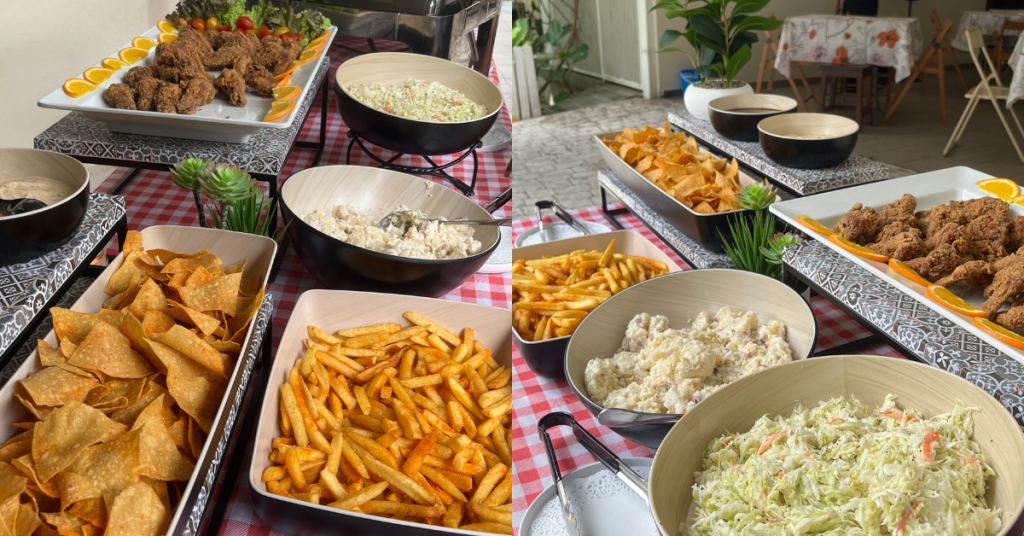
Although there are many challenges, there are no plans to let go of the Little Fat Duck brand. However, the business will be going back to basics, focusing on what worked for them in the past—food truck concepts.
Yet, this time, they’re supplemented by a different business venture, which is to supply to more F&B businesses.
Even through the many battles that come with entrepreneurship, Adel and his team continue to persevere, keen to continue serving Malaysians affordable dishes.
Also Read: This global real estate firm is expanding to KL to help local agents achieve their ambitions
Featured Image Credit: Little Fat Duck


